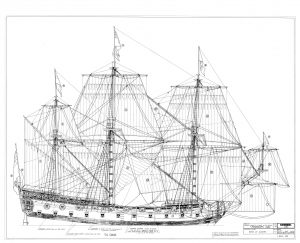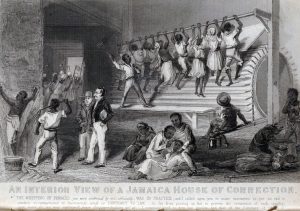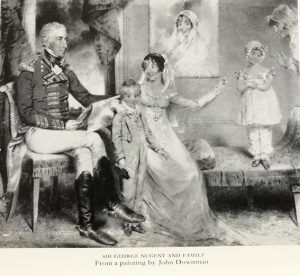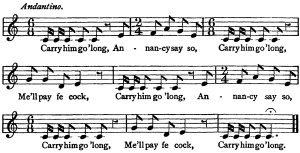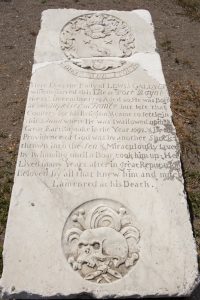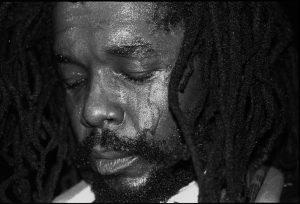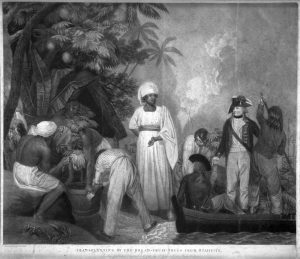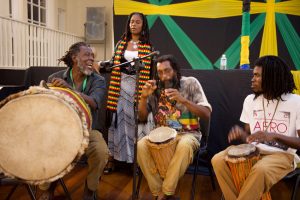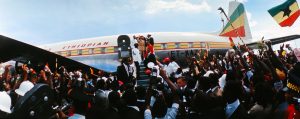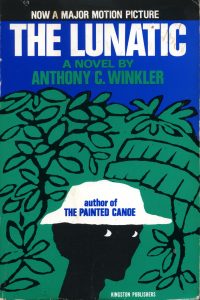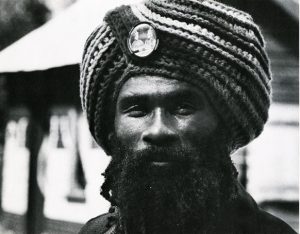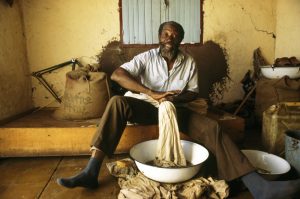Jamaica
What the voyages of HMS Harwich reveal about the ‘instruments of empire’
23 April 1758
“AS ENGLAND pursued its campaigns in West Africa and the West Indies, its ships, sailors and soldiers traced the connections between the Jamaica garrison and the wider war. By their movements and actions, these instruments of empire bound the disparate regions of the Atlantic world to the slaving economy. The belligerent cruise of HMS Harwich offers a telling example,” writes Vincent Brown in his brilliant new book Tacky’s Revolt: The story of an Atlantic slave war.(1)
Former slave James Williams’s autobiography exposes the evils of post-emancipation Jamaica
20 June 1837
JAMES WILLIAMS’s Narrative of Events – one of the very few autobiographical texts by a Caribbean who had experienced slavery – was a key text in the transatlantic campaign to fully abolish the lingering legacies of slavery in Britain’s Caribbean colonies.
Lady Nugent dances with a negro, shocks her hosts and prompts fears of a rebellion
26 May 1803
LADY NUGENT throws a fete for her servants and begins the ball by dancing with an old black servant which causes consternation amongst her white ladies in waiting who fear that such familiarity might breed rebellion.
The rise and fall of Port Royal “the wickedest city in the world”
07 June 1692
FOLLOWING the capture of Jamaica from the Spanish in May, 1655, the English forces left to guard the island began building a fort to control access to Kingston harbour and a small community, known as The Point, grew up around it. After the overthrow of Cromwell and the Restoration of the Monarchy in 1660, the Point was renamed Port Royal and almost overnight it became the haven of choice for pirates and privateers from all over the world when Governor Doyley invited the Brethren of the Coast – a syndicate of pirates made famous in recent times by the Pirates of the Caribbean movies – to make it their home port.
Peter Tosh at the One Love Peace Concert: the same Bucky Massa business
22 April 1978
THE ONE LOVE Peace Concert was an attempt to bring an end to the political civil war in Jamaica caused by rival gangs supporting the two major political parties – the JLP and the PNP. More than 35,000 people crowded into Kingston’s National Stadium to hear 16 of the country’s top reggae acts. The evening culminated in Bob Marley’s performance when he forced rival leaders Michael Manley and Edward Seaga to join hands. Although this act grabbed most of the headlines at the time, many people believe it was Peter Tosh who made the most memorable contribution to the evening.
Bligh and the breadfruit: the role of botany in Empire
05 February 1793
IN MY household, nothing speaks more powerfully to nostalgic memories of Jamaica than a freshly roasted breadfruit, its charred exterior peeled away to reveal the firm, sweet, yellow flesh. Eaten in segments doused in black pepper and melted butter, it is the food of the Gods. It’s almost as good the following day, refried, for breakfast. But breadfruit is not native to the Caribbean: like other exotic fruits which have become synonymous with Jamaica such as coconuts and mangos, they arrived as part of the imperial arms race around food security that accompanied the slave trade. When William Bligh, who survived one of the most infamous mutinies in British naval history on his first attempt to transport examples of this super food to the Caribbean, finally landed in Jamaica in 1793 on his second voyage from Tahiti with his cargo of breadfruit saplings, he was fulfilling a key role in the expansion of the British empire.
Report on the Nyabinghi Order by Frederico Philos
07 December 1935
THE first recorded instance of the word ‘Nyabinghi’ (1) entering Jamaican cultural discourse that I can discover comes with the publication of an account of the Nya-Binghi Order in Ethiopia and the Congo in The Jamaica Times, published in December 1935, just a few months after Italy had invaded Ethiopia. The article is clearly a crude piece of Fascist propaganda written to legitimise Mussolini’s colonial ambitions in the Horn of Africa. Nevertheless, it was embraced by early Rasta leaders and given an alternative reading and interpretation which led directly to the formation of the Nyabinghi Order of Rastafari in Jamaica.
Haile Selassie visits Jamaica
21 April 1966
DAVID KATZ – author, DJ and reggae historian – describes the Ethiopian leader’s historic 1966 visit to Jamaica and the profound impact it had on the development of music on the island.
Anthony Winkler: an excerpt from The Lunatic
18 September 2015
ANTHONY WINKLER, who died on 18 September 2015, is best known for his outrageously funny novel The Lunatic which was published in 1987 and subsequently made into a very successful film four years later. The Lunatic combines elements of magic realism, a wonderful, felicitous use of language that effortlessly blends standard English with Jamaican patois and an almost surreal, absurdist sense of humour to expose some of the dangerous social ills that afflict Jamaica.
Ras Hu-I: Merrise interviews the Rasta Doctor
07 August 1981
RAS HU-I was a celebrated Rasta doctor whose clinic was located near the D&G bottling plant in Reading, just outside Montego Bay. When Merrise and I were in Jamaica in 1981, we were staying only a mile or so from his clinic. I wanted to go to try to interview him, but, to be honest, I was getting a little worn down by the constant interrogation which accompanied my every interaction with Rastas. Also, I was still coming to terms with the idea that I was a Backra man. Merrise occasionally suffered from migraine so I suggested that she might go and interview Ras Hu-I about his natural remedies. So she did. The quotes which follow are from the tape she brought back that day.
Noel Dyer sets out to walk to Ethiopia
17 September 1964
I MET Noel Dyer during my stay in Ethiopia in 1981. One evening, early in February, we sat down in his modestly furnished front room, with just a small oil lamp for light. He scrabbled around in the drawer of his desk, scooped together the last remains of his supply of ganja, built a spliff and started on his tale.

